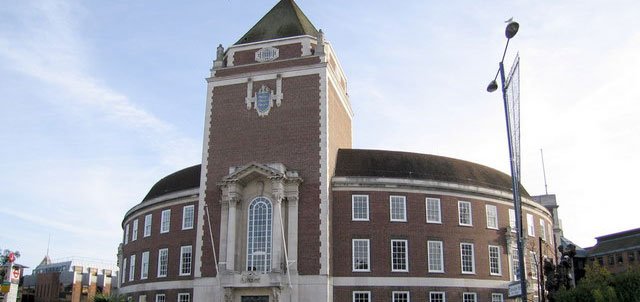
The Royal Borough of Kingston upon Thames is planning to set up a property investment company to oversee a planned multi-million-pound investment drive aimed at supporting council services.
In a report to members of the council’s finance and partnerships committee, director of growth Nazeya Hussain said the objective of the company would be to invest £68m in commercial property to “generate long-term revenue income streams” that created “profit for purpose”.
The cash would be borrowed from the Public Works Loan Board and invested in the company for the use of an “experienced private-sector investment fund manager” who the council would appoint.
Under a “base case scenario” referred to in the report, the net income return to the council over 50 years was £637,000 a year.
Kingston already has around 150 commercial properties let to third parties, delivering a gross annual income of around £5.4m a year, the committee was told.
But Hussain’s report said that the borough’s existing commercial property portfolio contained a number of “significant risk factors” because it was not balanced across a range of sectors and classes, was focused on the south-west London borough itself, and relied on just two assets for 65% of the income.
She told committee members that the new company’s assets would reduce the geographical risk of the borough’s current holdings by investing across the wider south-east region.
Hussain said that advice from law firm Trowers & Hamlins was that Kingston should set up its own incorporated company structure with a holding company as the parent body and the investment company as a subsidiary.
Neither the creation of a single special-purpose vehicle nor an unincorporated model, where the joint investment board remained within the council’s constitutional structure, were not recommended.
The preferred model would include oversight from an elected-member shareholder committee that would meet in public.
Councillors would be eligible to be board members of the holding company board.
Hussain said the structure gave the council “maximum flexibility” and was “highly resilient to potential political, corporate, constitutional or governance changes.
She said the incorporated company structure could be added to with other vehicles the council may want to create.
“Shares in companies can be transferred to other parties, such as another local authority, a combined authority, or a private-sector investor,” she said.
“Assets and potential liabilities are contained within separate legal entities; companies can be wound up in the event of a desired exit and new subsidiary companies can be established relatively quickly to fulfil different objectives.”

Hussain’s report said that the legal advice was that while local authorities had general powers to acquire and dispose of land, but when this was done for a profit it was necessary to do it through a company.
The report also referred to recent “controversy” in relation to councils borrowing to invest in property outside their administrative area.
In March this year Room 151 reported that the Ministry of Housing, Communities and Local Government was concerned about the extent to which some councils were complying with the requirements of its recently-updated investment code.
Earlier this month, official government data indicated a year-on-year increase in councils’ investment in commercial property.
The provisional outturn figures showed council spending on acquiring land and buildings increased by 4.5% to reach £4.21bn in 2018/19.
Hussain’s report noted that current government investment guidance, legislation, and the Chartered Institute of Public Finance and Accountancy (CIPFA) prudential code stipulates that councils should not borrow “solely for the purpose” of purchasing investment properties.
But it said such moves “may be justifiable on a case-by-case basis”, subject to due diligence and risk analysis.
“We would also suggest a value-for-money comparison as to whether the yield that can be obtained from investing in the particular property compares favourably with other ways in which the council’s funds might be deployed,” she said.
Hussain added that further legal advice, from QC James Goudie of 11 King’s Bench Walk, suggested that special justification for borrowing to invest in commercial property could include a demonstrable need to fund a particular project with the revenue generated – rather than funding a general budget gap.
Other justifications could include a project and expenditure on it being in line with council policy, or the borrowing being demonstrated to be in line with the council’s financial strategies.
The report said the nearer to the borough any new commercial property investment took place, the more likely it would be that the investment could be demonstrated to “benefit the council in ways that do not solely comprise a return on investment”.
If this week’s meeting approves the proposals, they will go to a full council meeting next month.
Earlier this year, Kingston resolved to push ahead with an £800m joint venture with developer Countryside Properties that will regenerate a 1970s estate.












